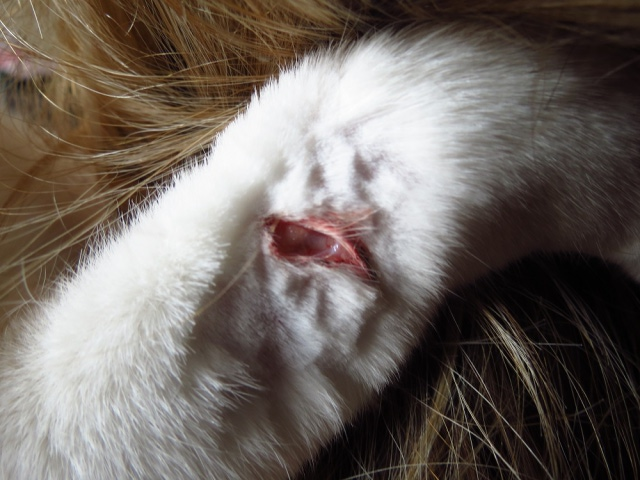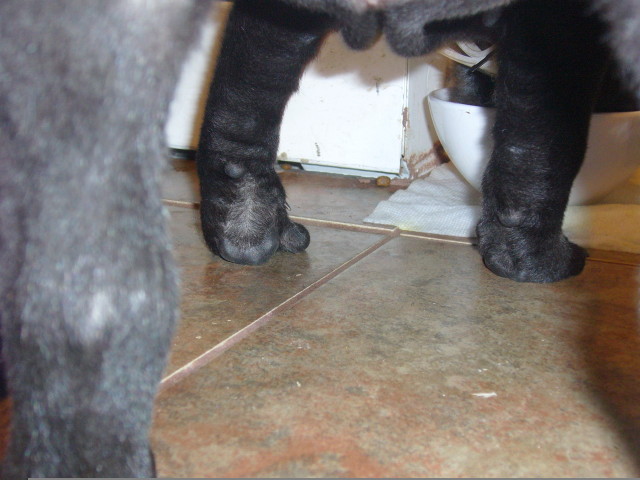QuestionQUESTION: Hello,
My 5-year old chihuahua was diagnosed with heartworm disease and it's close to severe stage already. His vet advised us to let him boost his body in preparation to the treatment. I know how serious the disease is and im aware that the treatment is as risky and difficult as the disease. Of course I want my chi to live longer but the risk of the treatment concerns me and made me skeptical about it. I want to get an honest opinion/recommendation from an expert (other than my vet) regarding this. Would the treatment be riskier? How big is the chance that my chi would overcome it and would be better during and after the treatment? In general, what is the percentage of the survival of the dogs who undergo the treatment? Is it true that once a dog has heartworm, his life will forever be at risk even after the treatment? What is the lifespan of a dog that has the disease, with and without the treatment? I would really appreciate the answers to these questions as this would really help us determine our next steps. Thank you
ANSWER: Johanna -
It is difficult for me to determine how your dog will do after the treatment because I do not know the present condition of your pet. The general recommendation is that the dog be stabilized before treatment. Most veterinarians will usually do what is known as a modified treatment to help your dog get rid of the heartworms slowly. The modified treatment will take a little longer, but it is usually easier on the dog's system.
Regarding your question of whether or not the treatment would be riskier - you will have to ask your veterinarian. If he stabilizes well, I am sure your vet will treat him. Treatment is almost always recommended. I have treated hundreds of dogs and most have done quite well. The dogs that did not do well were not kept quite while undergoing the treatment. That is the most important aspect of the treatment process - keeping the dog quite during the treatment. Leash walk the dog when he goes outside to use the bathroom and no romping around with the kids, or other dogs. No trips to the dog park!! It is absolutely essential that you keep him quite for the duration of the treatment. Your veterinarian can discuss the treatment process with you.
Unfortunately, I do not know the percentage of the dogs that survive after undergoing treatment. Maybe your vet will have those numbers.
You may want to ask your veterinarian if he/she is using the latest treatment regiment for heartworm disease. The treatment is less taxing on the body as it was twenty years ago and when following the doctor's recommendation, most dogs do quite well.
Your vet may recommend pain medicine after each injection; he/she may also give additional meads to help your dog's body cope with the dying heartworms. These meds can help ease the side effects of the treatment. Every animal is different; the side effects are usually mild, but depending on how it affects your dog, meds may be necessary.
If you do decide to treat your dog, remember to keep him on heartworm preventative once the treatment is over. Give it to him once a month for the rest of his life. It is possible for him to become heartworm positive again if he is not placed on preventative.
Best Regards,
Charlotte Sherrell, DVM
---------- FOLLOW-UP ----------
QUESTION: Thank you.. This is really helpful.. However, could you also give me an idea of the rate of chihuahuas who survive the treatment. My chi is 5 years old and only weighs 2lbs. He is very fragile and weak and becomes stress easily. Im not that confident if he'l be able to get through it (heartworm treatment). Im afraid Immiticide is too much for him. Any insight or recommendaton? Thanks you so much for prompt reply.
- Johanna
AnswerJohanna -
I do not have the answer to the rate of Chihuahuas who survive the treatment. The breed of dog is not important; as I stated earlier the physical condition of the pet is more critical than the breed of the pet.
Did the doctor think that this pet is strong enough for heartworm treatment? Immiticide is not a harsh medication; I have used it for hundreds of dogs over the years. Your indecisiveness regarding treating the dog will cause more harm than good -the heartworms are actually living in the pet's heart and are living on the pet's heart. Breathing can be difficult and heartworms can eventually cause heart failure. Consult with your veterinarian and make a decision to treat your pet so that she can breathe freely.
Best Regards,
Charlotte Sherrell, DVM

 Chanel
Question
Chanel
I had a miniature pinscher of 8
Chanel
Question
Chanel
I had a miniature pinscher of 8
 Cat with cut on front leg
Question
The cut
Hi, this morning I noticed that
Cat with cut on front leg
Question
The cut
Hi, this morning I noticed that
 Location problems
Question
Carna
Hey,
This is kayleigh again replying to
Location problems
Question
Carna
Hey,
This is kayleigh again replying to
 My dogs chronic ear allergy infections
Question
Hiedi
My dog whom is three years now-part Aust
My dogs chronic ear allergy infections
Question
Hiedi
My dog whom is three years now-part Aust
 Two Front Legs Hurting on a Shar Pei
QuestionQUESTION: My two month old puppy (shar pei) beg
Two Front Legs Hurting on a Shar Pei
QuestionQUESTION: My two month old puppy (shar pei) beg